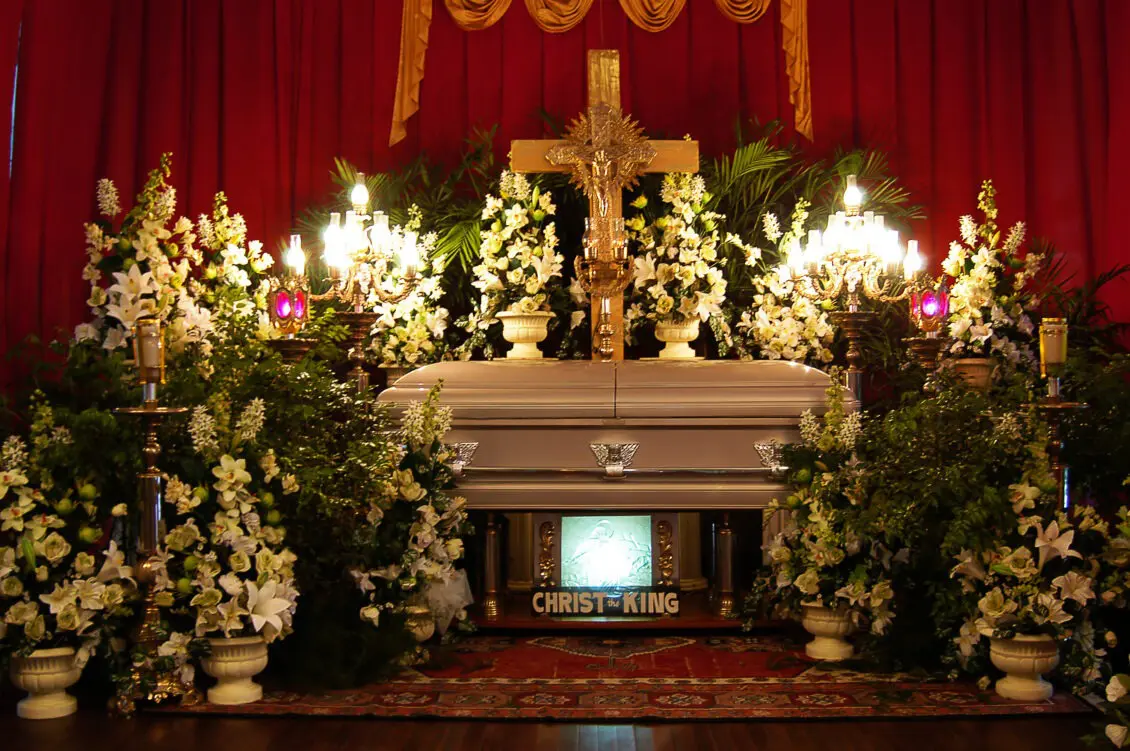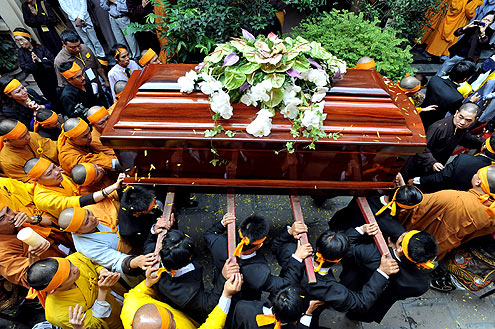Losing a loved one is a deeply emotional experience, and each religion offers its own unique way to honor the deceased. Faith-based funeral customs are an important part of the grieving process, providing a sense of comfort, continuity, and closure. From rituals to prayers, each tradition reflects the values and beliefs of that particular faith. In this article, we’ll explore various religious funeral practices from around the world, helping you understand how different cultures and faiths come together to say their final goodbyes.
1. Christian Funeral Customs
Christian funeral customs vary depending on denomination, but the central themes of resurrection, salvation, and eternal life are universal. In many Christian traditions, the funeral service begins with a wake or visitation, where family and friends gather to pay their respects to the deceased. This is followed by a funeral mass or service, where hymns, scripture readings, and prayers are shared.
One of the most important elements in Christian funerals is the emphasis on the belief in eternal life. The service often focuses on celebrating the deceased’s journey into heaven, offering comfort to those left behind. Prayers for the deceased’s soul are central to Christian ceremonies, and family members may choose to have a eulogy spoken by a priest or a family member.
The burial itself is often done in a cemetery, with the body being placed in the ground, reflecting the belief that the body will one day be resurrected. Many Christian denominations also incorporate symbolic elements such as candles, crosses, and the recitation of the Lord’s Prayer, helping to remind those present of the promise of everlasting life.
2. Jewish Funeral Practices
Jewish funeral customs are known for their simplicity and focus on respect for the deceased. The rituals surrounding death in Judaism aim to honor the soul while emphasizing the importance of mourning and community support.
Upon death, Jewish families typically have a quick burial, often within 24 hours, to honor the deceased and adhere to the belief that the body should be returned to the earth as soon as possible. The deceased is washed, dressed in simple shrouds, and placed in a plain wooden casket. The body is then accompanied by family and friends to the burial site, where mourners recite prayers such as the Kaddish, a prayer for the soul of the deceased.
Mourning in Judaism involves several stages, starting with Shiva, the seven-day period during which close family members remain at home and receive visitors who offer comfort and share memories. During this time, family members refrain from certain pleasures as a sign of respect for the deceased. After Shiva, there is a period of mourning known as Shloshim, lasting 30 days, where mourners gradually return to their normal lives.
3. Muslim Funeral Traditions
Islamic funeral practices emphasize respect, simplicity, and the belief that death is a transition from this world to the afterlife. In Islam, it is important to perform funeral rites as quickly as possible after death, typically within 24 hours. The body is washed and wrapped in a simple white shroud (kafan) and is placed in a casket, facing the direction of Mecca.
The funeral prayer, known as Salat al-Janazah, is performed by the family and community members at the mosque or burial site. This prayer asks for mercy on the deceased and all living beings. After the prayer, the body is taken to the cemetery, where it is buried in the ground, and the gravesite is marked with a simple stone.
For Muslims, the funeral process is not only about honoring the deceased but also preparing the soul for the journey to the afterlife. Mourners recite prayers for the deceased’s soul, seeking forgiveness and the hope of eternal peace.
4. Hindu Cremation Practices
Hindu funeral customs are deeply rooted in the belief in reincarnation and the cycle of life and death. Unlike other religions, cremation is the preferred method of disposing of the deceased’s body in Hinduism, as it is believed to help release the soul from the physical form and aid in the journey to the next life.
The funeral usually begins with a family member lighting a fire at the cremation site, symbolizing the release of the soul from the body. In Hindu customs, the eldest son or close family member typically performs the final rites, such as the lighting of the pyre. Family members and friends may offer flowers, incense, and prayers during the cremation process.
Following the cremation, there is a mourning period, with family members engaging in rituals to ensure that the soul reaches its destination. These rituals may include offerings to the deceased’s soul and prayers for their peaceful transition into the next life. After a set period of mourning, a ceremony called Shraddha is performed to honor the deceased and help them find peace.
5. Buddhist Funerals: Honoring the Cycle of Life
Buddhism views death as part of the ongoing cycle of rebirth, and funeral practices are centered around helping the deceased move toward a peaceful transition. Buddhist funeral customs can vary based on region and tradition, but the underlying belief is the same: death is not an end but a transformation.
In many Buddhist cultures, the body is cremated, and the funeral service includes chanting by monks. The family gathers to offer prayers, such as the Sutra of Amitabha, to help guide the deceased’s soul toward enlightenment. Offerings of food, incense, and flowers are placed near the deceased’s body, symbolizing the impermanence of life.
For many Buddhists, the focus is not only on the deceased but also on the living. Family and friends use the funeral as an opportunity to reflect on the impermanence of life, meditate, and practice mindfulness. The funeral may conclude with a series of rituals designed to help the soul move into a peaceful state.
6. Indigenous and Other Cultural Funeral Traditions
Indigenous cultures around the world have unique funeral customs that reflect their deep spiritual connections to nature, ancestors, and the earth. While these practices vary widely, many emphasize a deep respect for the deceased and the belief that death is a return to the spirit world.
In some Native American traditions, the deceased may be honored with a spiritual ceremony that includes songs, dances, and offerings to ensure a smooth journey into the afterlife. In African traditions, funerals are seen as a community event, with elaborate ceremonies involving feasts, music, and dance to celebrate the life of the deceased.
Many cultures also incorporate ancestral worship in their funeral practices, honoring the deceased as they are believed to continue watching over the living.
Faith-based funeral customs offer a comforting and meaningful way to honor the memory of loved ones. Whether through Christian prayers of salvation, Jewish traditions of mourning, or Hindu cremation rites, each faith provides its unique approach to handling the complexities of loss. Understanding these traditions allows us to appreciate the rich cultural and spiritual diversity that shapes how we say our final goodbyes, offering solace in times of grief and reinforcing the belief in life beyond death.
As we go through life’s inevitable transitions, these rituals remind us of the love we share and the hope of peace for those who have passed.





